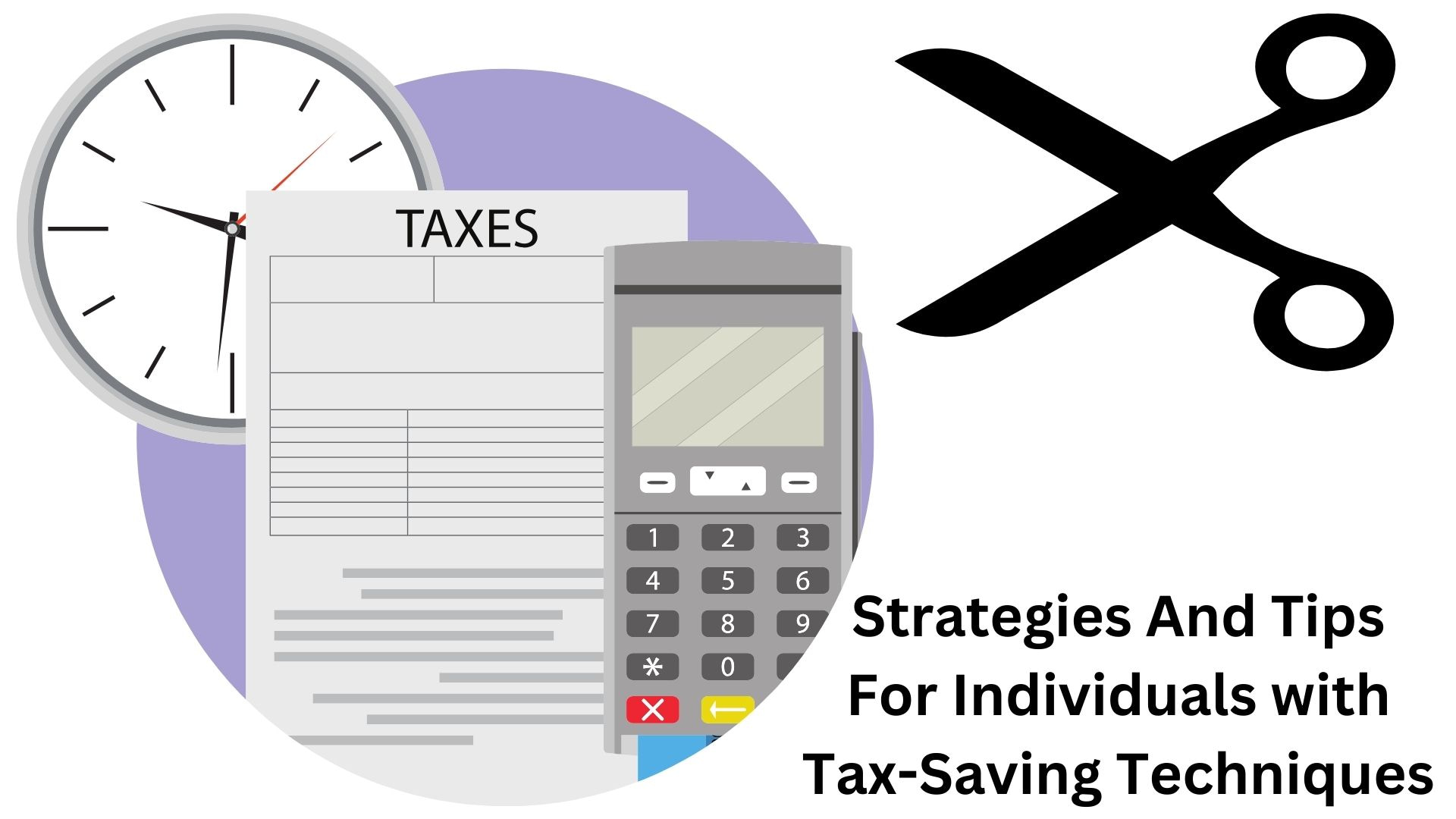The period of tax payment can be very scary for some individuals. However, with the right tips and knowledge, it is possible to reduce your tax liabilities and keep more of your hard earned money.
In this guide we will cover various tax saving techniques and strategies applicable to both US and UK individuals.
From retirement accounts to investment tactics and from tax deductions to estate planning, we have you covered on all information necessary for optimizing your tax savings.
Tax Saving Techniques Overview
Tax saving techniques are important for people who want to minimize their legal responsibilities towards taxes. These strategies ensure that one doesn’t pay more than is required by law as provided in them.
Common methods include; maximizing contributions into tax advantaged accounts, using credits or deductions when filing returns and strategic investments among others which reduces taxable income while boosting efficiency in taxes paid.
Advantaged Tax Accounts
401(k)s, IRAs or pension schemes are some of the best ways through which an individual can save on taxes. These types of accounts allow one to contribute money before it’s taxed thereby reducing their current year’s taxable income as well giving them a chance withdraw such funds during retirement when they may be in lower bracket for taxation purposes.
The UK has similar provisions where long term savings benefit from relief on pensions contributions made by employees’ salaries being deducted before any other taxes are levied against it!
Investment Strategies For Tax Savings
You can also avoid paying too much tax by investing in assets or funds that have been designed specifically with this goal in mind. An example would be municipal bonds which offer federal level income taxation exemptions among others available throughout different states within USA while ISAs provide growth free from capital gains duties under British law
Another great strategy here is what’s referred as harvesting losses against gains where investors sell off certain investments at a loss so that they can use them offset profits subjecting same gains lower rates chargeable thereby resulting into less money being owed as tax.
Tax Deductions and Credits
Understanding deductions and credits is key to saving significant amounts on taxes. It’s worth noting that these two terms are quite different; with the former reducing one’s taxable income while the latter directly decreases taxes owed by individuals hence lowering their burden in relation to this financial obligation.
In US mortgage interest, charitable contributions and medical expenses are some examples of deductions which can be used lower your taxable income. On the other hand such credit programs like earned income tax credits or child care credits (UK) will help you reduce what you owe for tax bill dollar for dollar!
Business Tax Planning
The federal government provides provisions where small business owners may qualify them for some exemptions against corporate earnings taxation if they meet specific conditions set out under law. These include but not limited to; retirement plans, incorporation strategies among others
Different UK laws also recognize that certain types of enterprises need more incentives than others when it comes limiting liability on profits made therefore allowing various forms such as limited partnership status so as pass through taxation rules would apply instead making them subject higher rates chargeable thus leading into more savings achieved from tax perspective.
Estate Planning And Taxes Implications
There is need for proper planning during estate arrangements since failure to do so could have serious consequences in terms wealth transfer taxes especially where large sums are involved either within US or UK jurisdictions.
Trusts, gifting and charities can be utilized a way of minimizing estate duties while ensuring assets get distributed according individual wishes.This applies equally well both USA & British systems if one wants minimize exposure towards inheritance levies without necessarily having any effect on who inherits what after death has occurred!
Investment Tax Planning
Saving money through investment requires careful consideration about how different types
of investments attract returns subject to wide variety capital gain rates ranging from 0% up 20% depending upon ones marginal bracket applicable at time sale proceeds are received
Health Savings Accounts (HSAs) and Flexible Spending Accounts (FSAs)
In the US, people can save on taxes when paying for healthcare by contributing to Health Savings Accounts (HSAs) and Flexible Spending Accounts (FSAs).
Withdrawals are tax-free if used for qualified medical expenses; and contributions are tax-deductible. Similarly, in the United Kingdom, there is a tax relief available on contributions towards health savings accounts (HSAs) as well as flexible spending accounts (FSAs).
Tax-Efficient Charitable Giving
Charity provides significant tax savings alongside other benefits. Tax deductions can be claimed against donations made to charities.
Donor-advised funds and donating appreciated assets are some of the strategies that can be used maximize tax benefits while supporting charitable causes in both countries like USA and UK.
Tax Planning for Real Estate
Real estate investments offer unique opportunities for tax savings. Both United States citizens or residents [USA] and British citizens or residents [UK] have access to certain deductions such as mortgage interest deduction, property tax deduction; as well depreciation allowance which eventually reduce their taxable income from this source.
In addition to that, 1031 exchanges defer capital gains taxes arising from sale of investment properties held within US territories while rollover relief postpones payment of equivalent capital gains arising out sales made anywhere else but within UK jurisdiction.
FAQs
What are some common individual-level methods people use in order not pay more income taxes than necessary?
Common individual-level methods include making maximum contributions towards retirement accounts; utilizing all available credits coupled with deductions; adopting strategic investment planning among others.
How do retirement accounts help lower one’s taxable income?
Retirement accounts like 401(k)s or IRAs reduce current-year taxable income because amounts contributed into these plans are deducted first before calculating taxes due.
Which kind of expenditures qualify for tax deductions?
Some examples would include: mortgage interest paid on loan used acquire personal residence; medical expenses exceeding a certain threshold; charitable donations of money, goods, services etc.
What are the different credits that may reduce tax bill?
Some include Earned Income Tax Credit [EITC] which is refundable; Child Tax Credit [CTC] also refundable to some extent depending on one’s earnings level among others.
Are there any specific ways through which owners of small businesses can minimize their tax obligations?
Owners can lower taxable income by claiming deductions for business expenses including depreciation allowances on capital assets used in the course of business operations. Setting up retirement plans like SEP-IRAs do this job too well while incorporation limits liability while reducing taxes at same time.
What does it mean when people talk about “tax-loss harvesting”?
Tax-loss harvesting refers to selling off investments that have lost value in order offset gains realized from sale other appreciated assets during same period thereby reducing overall tax liability arising out such transactions where profits were made.
Can you explain how estate planning helps save money on taxes?
Strategies such as trusts and gifts help reduce estate duty costs while ensuring smooth transfer wealth among generations. Charitable bequests or endowments might earn philanthropic individuals some relief from inheritance levies if structured correctly over years.
How do HSAs and FSAs contribute towards saving money when it comes to paying for healthcare?
Contributions into these accounts attract tax savings which ultimately lowers an individual’s medical bills. The UK government allows people in that country access similar benefits but under Health Savings Accounts (HSAs) as well as Flexible Spending Accounts(FSAs).
Which types investment attract various kinds taxation regimes within their jurisdictions?
Dividends paid by companies listed on stock exchange incur withholding tax while governments charge capital gains derived from sale assets held less than stipulated period; interest earned bank deposits are subject standard rates applicable income earned within particular bracket(s) based either residence status or citizenship among others.
What steps should I take so as not lose out potential tax advantages associated with charitable donations?
Some ways include contributing appreciated securities or personal property instead cash; setting up donor-advised funds while alive then naming beneficiaries who will continue supporting various causes even after one’s death.
Conclusion
Individuals can reduce their tax liabilities by implementing these strategies in both the US and UK.
There are a lot of ways to save money on taxes and make better financial decisions such as maximizing retirement savings, using tax deductions or credits, and investing strategically. Keep in mind that you should consult with an accountant who knows about your particular needs when it comes down to tax planning.
You can greatly improve your financial health by following careful planning along with proactive tax management that may lead onto large amounts saved through taxes.




